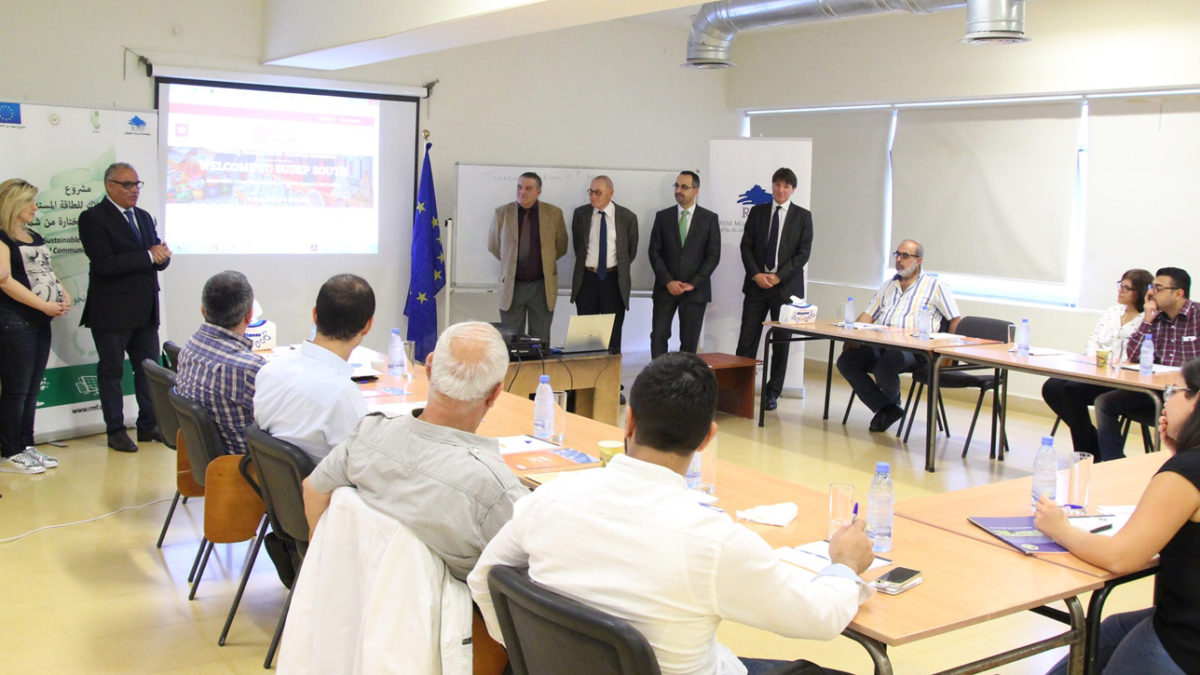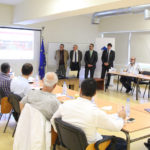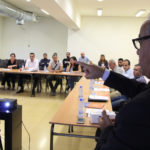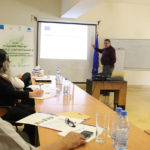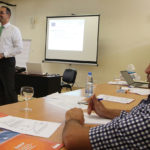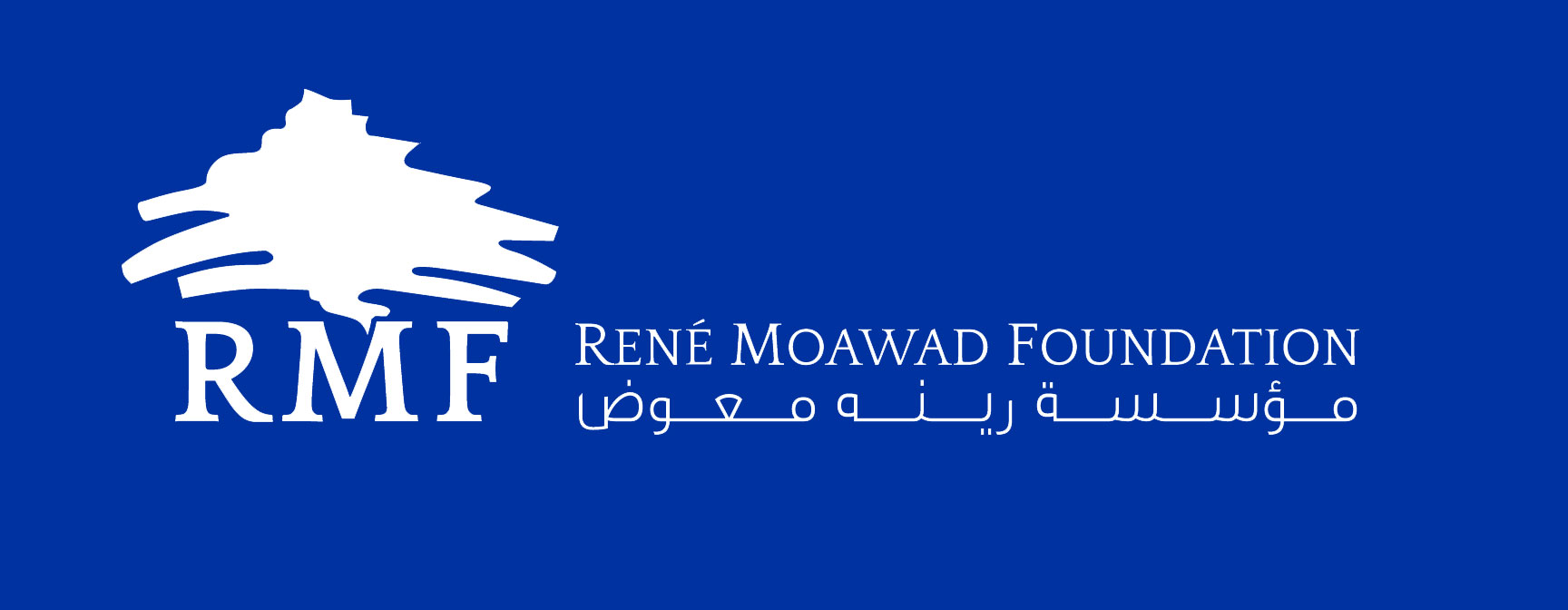October 19, 2016 – The Sustainable Urban Demonstration Projects (SUDEP-South project) funded by the European Union and implemented by the GIZ-International Services launched its first training program for beneficiary municipalities and their local partners on October 19, 2016. Four international experts carried out two separate training activities; one dedicated to procurement, monitoring and evaluation and a second one focused in measurement, verification and energy management systems.
A total of 25 participants from the four beneficiary municipalities involved in the SUDEP South project are being trained during two days at the headquarters of the Rene Moawad Foundation (RMF) in Mejdlaya-Zgharta. Among the total number of participants there are representatives from the University of Balamand in Koura, Business Incubation Association in Tripoli (BIAT) in Halba, the Rene Moawad Foundation (RMF) and national institutions as Lebanese Center for Energy Conservation (LCEC), and the Industrial Research Institutes (IRI).
This two-day training will be concluded on October 21 with the inauguration of 5 activities in the municipality of Ardeh. National, local officials and European Union representatives, will be present to commemorate the launch of the implementation of the Ardeh project, in the framework of the SUDEP South.
SUDEP-South project started its activities in early 2015 over 12 cities in 6 countries of the southern Mediterranean. Lebanon counts with more than 30% of the 12 projects in the region, distributed in the four municipalities: Ardeh, Baakline, Koura and Halba.
The overall objective of the SUDEP Programme is to assist local authorities on responding to sustainable energy challenges.
The specific objective is to enable local authorities to implement sustainable energy actions leading to energy savings, energy efficiency and more use of renewable energy sources as solar energy.
A Support Mechanism (SUDEP-South SM) has been established and operated to:
- Assist local authorities and reinforce their capacities and their partners in the implementation of their demonstration projects.
- Promote the replication of innovative actions and the visibility of the programme’s results.
- Create the enabling environment for the exchange of good practices between projects beneficiaries
- Develop their own local strategies to ensure widespread dissemination and sustainability of their projects.
